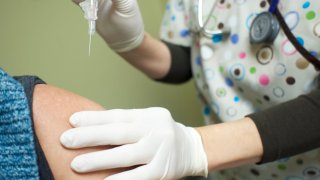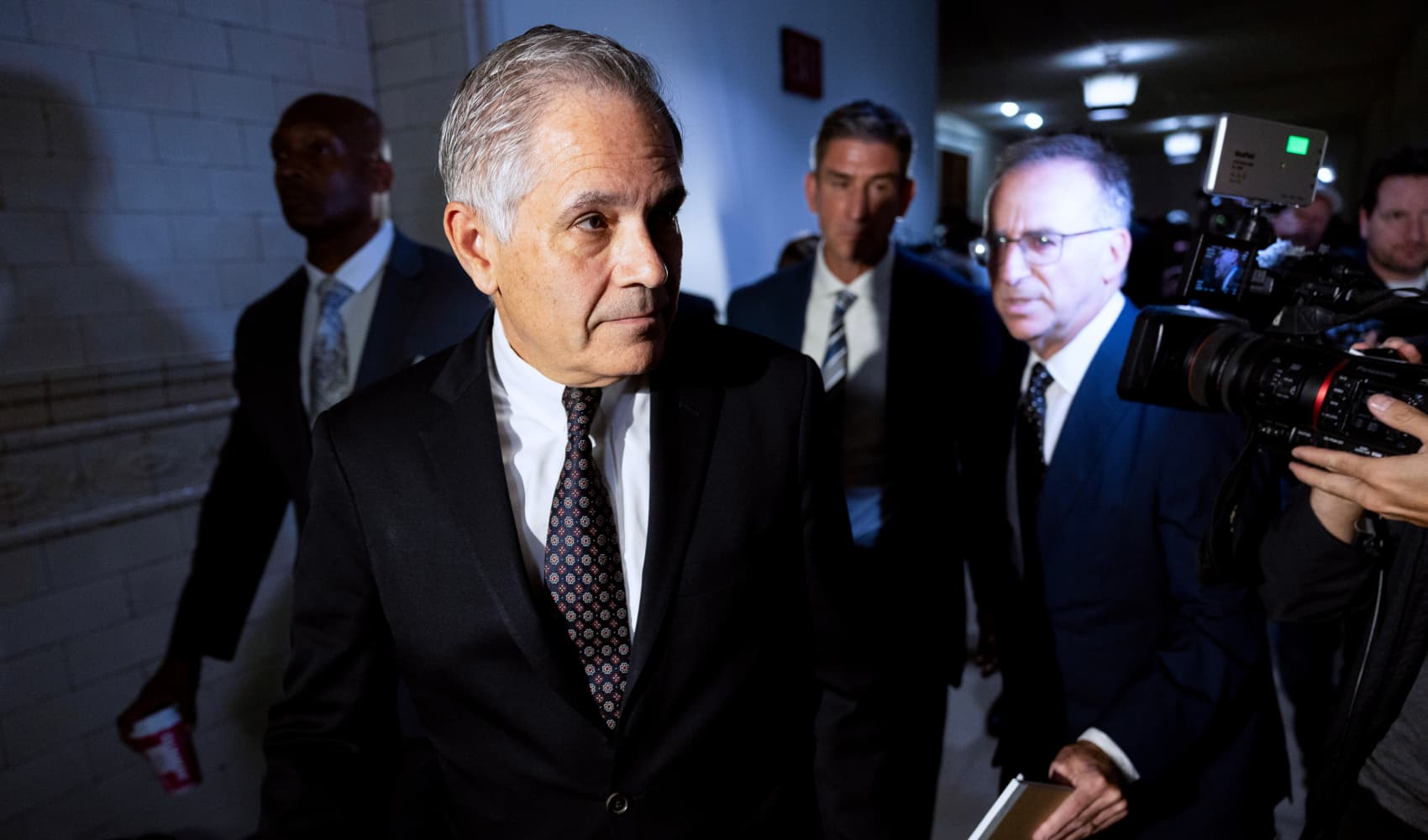
On Monday, Sandra Lindsay, a critical care nurse at the Long Island Jewish Medical Center, became the first American to receive Pfizer's Covid-19 vaccination outside of a clinical trial, after the FDA granted its emergency use authorization Friday.
This week, the Department of Health and Human Services is expected to send out 2.9 million doses of the Pfizer vaccine, and "we hope we will see as much of that used as humanly possible this week," secretary Alex Azar told NBC News' "TODAY" on Monday.
"We know we have the vaccine available to get to 20 million people by the end of December and then a total of 50 million by the end of January," Azar said.
Under the CARES Act, the Covid-19 vaccine will be free to anyone who wants it, but providers will be able to charge an administration fee (which is covered by health insurance) for giving the shot to someone.
Wondering what this means for when you can get vaccinated? Here's what we know so far:
Who gets the vaccine first and when?
States will receive these first doses based on their population, and governors will then determine how to distribute the vaccine.
Money Report
But healthcare personnel and long-term care facility residents should receive the vaccine first, according to the Advisory Committee on Immunization Practices, the independent panel of medical and public health experts that's responsible for coordinating vaccine distribution.
"Healthcare personnel" includes all paid and unpaid people who work in healthcare settings and are at greater risk of exposure to Covid-19 patients or infected substances, according to the CDC. This group includes everyone from physicians to medical students, maintenance staff in hospitals to home aides and more.
People who live in long-term care facilities, such as nursing homes and assisted living facilities, are priority because older adults are at a greater risk of requiring hospitalization or dying from Covid-19.
"Between now and the end of December, you would likely get a substantial proportion of health care providers and people in your nursing homes [vaccinated]," Dr. Anthony Fauci, the nation's leading expert on infectious diseases told New York Gov. Andrew Cuomo on Dec. 8.
The vaccines are distributed to hospitals and long-term care facilities (where CVS and Walgreens will administer the vaccinations to residents and staff).
Those who are 65 and older are also recommended to get the vaccine early if supplies are limited. And other groups that could get vaccinated early next year include essential workers and people who have underlying conditions that put them at greater risk of severe illness from Covid-19, including cancer, kidney disease, heart conditions and type 2 diabetes.
As vaccinations become more widely available, the ACIP will release additional recommendations for distributing vaccines to priority groups.
The general population
Vaccines could be available in pharmacies and supermarkets as soon as late February and into March, Azar said Monday.
And according to Fauci, adults who don't have underlying health conditions and who are not essential healthcare workers will be able to "walk in to a CVS or to a Walgreens and get vaccinated" with their first shot by April, he said during an interview with Facebook CEO Mark Zuckerberg on Nov. 30.
The Covid vaccines in the works are considered "prime-boost immunization," because they require two shots scheduled 28 days apart. While the first injection provides some protection, it peaks seven to 10 days after the second injection is administered, Fauci said. (People will receive a vaccination card that serves as a reminder for when they are due to get the second injection, and includes information about where and when you received the vaccination.)
"If we do that well, by the time we get into the core of the summer and get to the end of the summer and into the start of the third quarter of 2021, we should be in good shape," he said.
Fauci has said that 75%-85% of Americans need to get the vaccine in order to achieve herd immunity.
Pregnant women and children
Pregnant women and children were excluded from both Pfizer and Moderna's clinical trials, so it's not clear whether these vaccines are safe for these groups.
Studies on Covid-19 vaccines for pregnant women and children will likely begin in mid-January, Fauci said at Columbia University's Grand Rounds 2020 event Thursday.
Moderna's vaccine is still under review by the FDA, but is expected to be ready by late December.
Check out: Bill Gates: Vaccine distribution could be ‘tricky and weird’ thanks to the federal government
Don't miss: Here are the 5 best personal loans of December 2020






